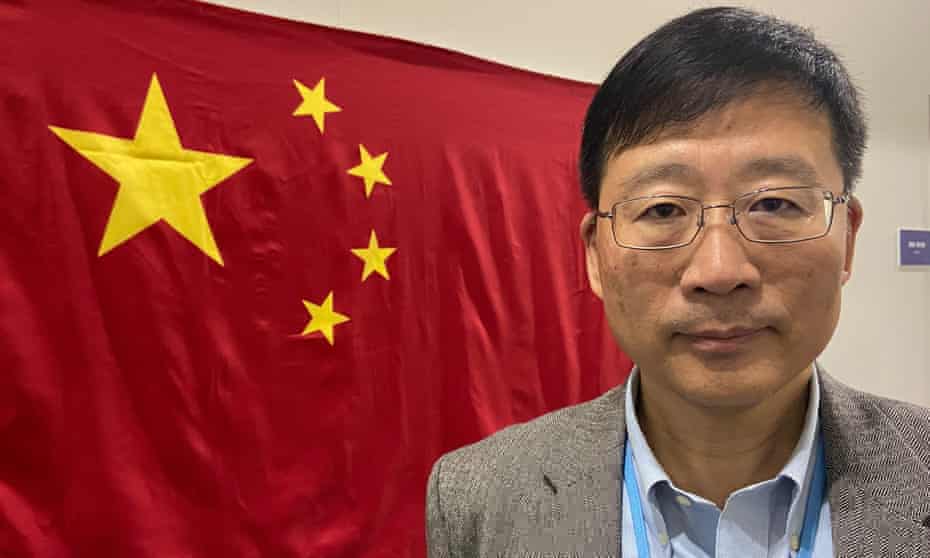Senior Beijing adviser also defends scale, depth and detail of country’s ‘unappreciated’ climate actions

Chinese officials are sceptical of claims that Cop26 commitments will keep global heating below 2C, and want other countries to focus on concrete actions rather than distant targets in the final week of the talks.
They feel that China, the world’s biggest emitter, is doing more than it is given credit for, including plans to peak coal consumption by 2025 and add more new wind and solar power capacity by 2030 than the entire installed electricity system of the US.
“There has been a lot of criticism of China’s attitude in the media, but many of them are based on incomprehension or misunderstanding,” said Wang Yi, a senior adviser to the Chinese delegation.
During the first week of the UN climate talks in Glasgow, China has been portrayed at times as a reluctant laggard in the effort to keep global heating to 1.5C. The US president, Joe Biden, said it was a “big mistake” for his Chinese counterpart, Xi Jinping, not to show up. China’s climate plan disappointed many because it contained no fresh ambition, and the country was notably absent from alliances to reduce methane emissions and phase out coal.
But Wang, a key consultant on China’s decarbonisation strategy and five-year plan, said his country had delivered a policy framework and detailed roadmap to cut emissions, while other nations were congratulating themselves on vague long-term promises.
He is sceptical of a recent estimate by the International Energy Agency and others that the pledges made in Glasgow could constrain global heating to 1.8 or 1.9C. “Based on our research, I can’t see evidence that we can reach 1.9C,” he said. “But whether we are now on course for 1.9C or 2.7C, the main point is that we should focus on concrete action.”
Wang expressed frustration that the scale, depth and details of China’s climate actions were not appreciated. “Unfortunately, China cannot change the China narrative,” he said. “To reach our targets, we have outlined a change to our entire system, not just in the energy sector but across society and the economy. Nobody knows this.”
China has released five documents detailing plans to achieve its dual goals of peaking carbon emissions in 2030 and reaching net zero by 2060. “If you read those reports you can find all of our actions, but nobody reads everything,” he said.
As an example, he said the working guidance document on carbon peaking and neutrality outlined a strict control on the increase of coal consumption during the 14th five-year period and then a gradual reduction during the following five years. “That means China will peak coal consumption around 2025, though that is not a line you will see in the document. You need to interpret it and nobody [outside China] can do that.”
Similarly, he said the government 1+N policy system provided a roadmap of 37 tasks that the country needed to take until 2060 on areas ranging from legislation and policy to technology and finance. There will be another 30 documents published in the coming year that break down actions needed in key sectors, such as building and transport, as well as major industries including steel and chemicals. “No country has issued so many documents to support its targets,” he said. “It’s a holistic solution, but nobody knows.”
China’s two different targets pose very different challenges, he said. “The peaking issue is easy. More difficult is how to achieve neutrality … We are in transition. Our concern in the future is not that China is too slow, but that it is too fast.”
